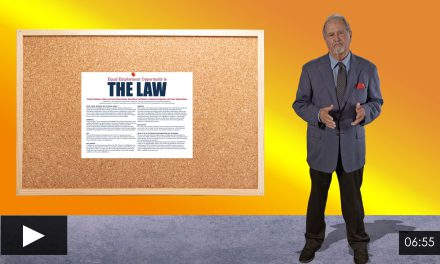The August 2020 DBO focuses on continuing safety compliance for coronavirus (COVID-19), the California Residential Mortgage Loan Act, additional loan accommodations related to COVID-19 and imposter scams.
The California Department of Business Oversight (DBO) supervises, licenses and regulates a variety of financial institutions, including some real estate mortgage loan originators (MLOs) holding a Nationwide Multistate (or Mortgage) Licensing System and Registry (NMLS) license. Alongside the California Department of Real Estate (DRE), the DBO shares the responsibility for overseeing MLOs depending on their license use.
Licensees, read on for the latest DBO happenings.
DBO monitoring face covering compliance
In accordance with Governor Newsom’s directive on face coverings, the DBO is reminding all licensees to ensure all employees and clients comply with the latest guidance from the California Department of Public Health (CDPH).
All clients and customers are required to wear face coverings in accordance with CDPH guidance. Those who refuse to wear masks or do not meet CDPH exemptions are not allowed to enter places of business.
The DBO conducted drive-by spot checks of branch and storefront locations to confirm compliance. These brief inspections checked for publicly visible notices and greeters providing personal protective equipment at the entrance.
Anyone with questions may email the DBO at Ask.DBO@dbo.ca.gov.
Report on the California Residential Mortgage Loan Act
The 2019 Annual Report of activity under the California Residential Mortgage Lending Act (CRMLA) provides comprehensive information on residential mortgages, rates, foreclosures and consumer complaints. The report consists of data submitted by residential mortgage lenders and servicers.
The report found the number and principal amount of loans originated by licensees increased significantly in 2019 from 2018. The number of loans in this period grew to 552,687, an increase of 51.4%. In addition, the number mortgages originated in 2019 also went up from 2018, by 37.6%.
Additional loan accommodations related to COVID-19
The Federal Financial Institutions Examination Council (FFIEC) issued a statement regarding risk management and consumer protection principles for financial institutions to consider when working with borrowers as the initial coronavirus-related mortgage accommodation periods come to an end.
The Council urges licensees to consider additional accommodations that ease pressure on affected borrowers, improve their capacity to service debt and facilitate prudent management of mortgages. To help avoid delinquencies and other adverse consequences, the FFIEC recommends:
- reassessing risk ratings for each mortgage;
- applying appropriate loan risk ratings and grades; and
- making appropriate accrual status decision on loans affected by COVID-19.
The statement also asks financial institutions to consider additional accommodations for borrowers struggling financially.
The FFIEC is an interagency body which prescribes uniform principles and standards, and reports forms for the federal examination of financial institutions by the Board of Governors of the Federal Reserve System (FRB), the Federal Deposit Insurance Corporation (FDIC), and more.
COVID-19 imposter scams
An advisory alert to financial institutions has been issued by the Financial Crimes Enforcement Network (FinCEN) regarding consumer fraud. The advisory includes descriptions of imposter scams and money mule schemes, financial red flags, and information on reporting suspicious activity.
The alert advises imposters are posing as officials and representatives from the Internal Revenue Service (IRS), the Centers for Disease Control and Prevention (CDC), the Federal Bureau of Investigation (FBI) and the World Health Organization (WHO) to target individuals directly. Some of the red flags discussed include:
- contact from a government agency by phone, email, or social media promising to process or expedite unemployment benefits in exchange for sensitive financial information;
- receiving a document that appears to be a check or a prepaid debit card from the U.S. Treasury with instructions to contact the fraudulent government agency;
- unsolicited communications from trusted sources or government programs related to COVID-19, instructing readers to open or embed links to give personal information; and
- email addresses in COVID-19 correspondence which do not match the name of the sender, contain grammatical errors or do not end in a corresponding domain such as “.gov.”
The advisory is based on COVID-19 related information taken from Bank Secrecy Act (BSA) data, open source reporting and law enforcement.
That’s a wrap on another DBO bulletin digest! As always, you can find the complete DBO bulletin on their website.

















